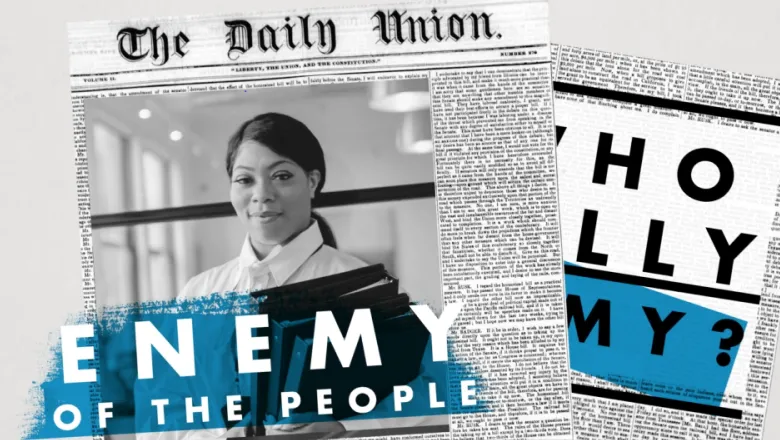Democracy is a huge concept within itself. So, a large part of this project was learning to not be afraid to cut out content if it seemed unnecessary. Admittedly, one and a half minutes is not a lot of time, so there was a lot of editing. Writing the script was the most difficult part because it had to form a cohesive narrative. Eventually we got there but only by transposing ourselves into the mindset of the viewer.
Amina Bold (2nd Year; Politics, Philosophy and Law)
18 March 2022
Student animation project to help people with learning difficulties understand democracy
King’s students have taken the creative lead in a new project, producing short animations to educate young people, including those with learning difficulties, on topics in constitutional law.

The idea for the project, Discovering Democracy, came from Dr Emily Barritt, from The Dickson Poon School of Law, and was inspired by her personal experiences. Dr Barritt said: “My brother, Sam, has Williams Syndrome, and I wanted to create a resource for him, and for other people with learning difficulties, to provide access to university learning on topics in constitutional law - topics that are important for everyone to know and understand.”
Students were recruited from across the university, through King’s Legal Clinic. The project provided an opportunity to think about how to make complex ideas accessible.
Amina Bold (2nd Year; Politics, Philosophy and Law) led the team producing the film What is Democracy? She was attracted by the inclusive nature of the project: “I was interested in this project because I firmly believe that democracy is essential to the functioning of a healthy society. When any group is excluded, it inhibits the ability of democracy to function properly. Our society excludes those with different needs far too much. I was hoping I could help, in a small way, to change that.”
Lise Demay (3rd Year; English Law and French Law), led a team of five students that worked on the film Rule of Law. Like many of the students involved, Lise could draw on previous creative experience, in her case in marketing, and of interacting with people with learning difficulties: “One of the challenges was to dissect this complex concept in a comprehensive but easily digestible manner for individuals with learning difficulties, without infantilising them.”
While the films have been specifically designed for people with learning difficulties, they could also be useful to a wider audience.
We are living in a time when politicians are playing with the flexibility inherent in concepts like democracy or the rule of law as a way to justify their actions. It is easy for them to do this because these ideas are flexible and can mean many different things, but also because education about the British constitution and constitutional concepts is often only accessible to a limited portion of society. I hope these videos can play a small role in making understanding about constitutional law more accessible.
Dr Emily Barritt
